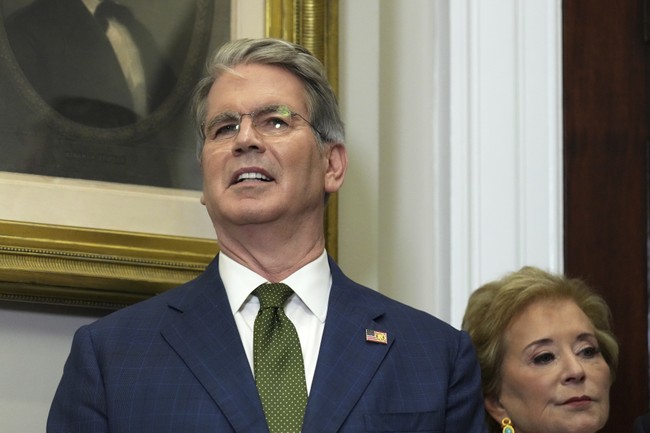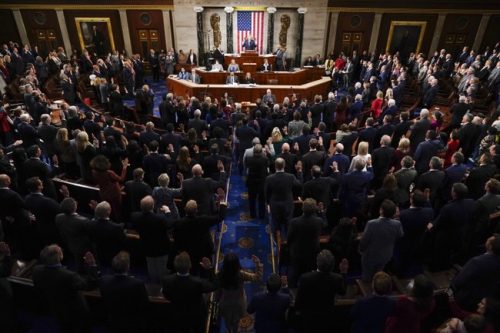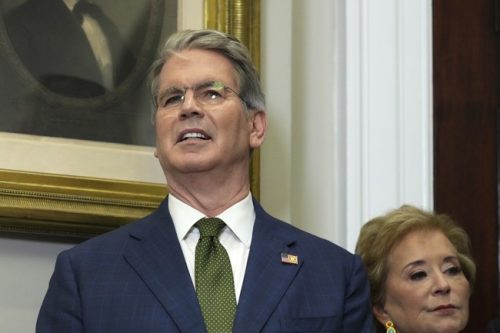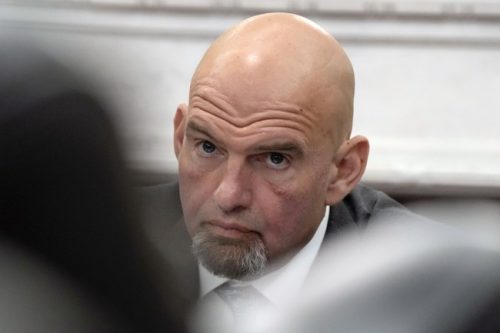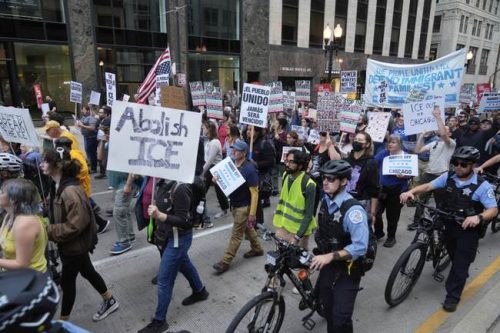The Treasury has sanctioned a wide, multinational procurement network linked to Iran’s ballistic missile and UAV programs, naming 32 people and entities across Iran, the UAE, Türkiye, China, Hong Kong, India, Germany, and Ukraine while detailing supply chains, designated organizations, and legal authorities behind the action.
The Office of Foreign Assets Control announced sanctions on 32 individuals and entities that allegedly run procurement networks supplying Iran’s ballistic missile and unmanned aerial vehicle programs. The designations span multiple countries and target suppliers, middlemen, and front companies that moved chemicals and components needed for propellants and UAVs. The named networks are tied to Iran-based industrial and defense entities that have long appeared on U.S. sanction lists.
At the center of one case is a three-person venture called the MVM partnership, active since 2023, which coordinated purchases of propellant ingredients from China. The partnership allegedly sourced sodium chlorate, sodium perchlorate, and sebacic acid on behalf of Parchin Chemical Industries, which is part of Iran’s Defense Industries Organization. Those materials are precursors and additives used to make rocket propellants and resins for missile work.
Parchin Chemical Industries was designated pursuant to E.O. 13382 in July 2008, and the Defense Industries Organization was designated pursuant to E.O. 13382 in March 2007. Both DIO and PCI are also subject to asset freezes under United Nations Security Council Resolutions 1737 and 1747 respectively. That history underlines why Treasury framed these new steps as part of a sustained counterproliferation effort.
OFAC noted that all property and interests in property of the designated or blocked persons that are in the United States or in the possession or control of U.S. persons are blocked and must be reported. Entities owned 50 percent or more by blocked persons are blocked as well. Unless authorized by OFAC, U.S. persons are generally prohibited from transacting with blocked persons, and violations can trigger civil or criminal penalties.
Financial institutions and other parties risk exposure to sanctions if they engage in certain transactions or activities with designated or otherwise blocked persons. OFAC can impose strict conditions on correspondent or payable-through accounts in the United States for foreign financial institutions that knowingly conduct significant transactions for designated actors. The regulations are designed to cut off access to U.S. clearing and the global financial system.
“Across the globe, Iran exploits financial systems to launder funds, procure components for its nuclear and conventional weapons programs, and support its terrorist proxies,” said Under Secretary of the Treasury for Terrorism and Financial Intelligence John K. Hurley. “At the direction of President Trump, we are putting maximum pressure on Iran to end its nuclear threat. The United States also expects the international community to fully implement UN snapback sanctions on Iran to cut off its access to the global financial system.”
Treasury described these networks as threats to U.S. and allied personnel in the Middle East and to commercial shipping in the Red Sea. The agency said Iran is trying to rebuild proliferation-sensitive capabilities destroyed after the 12‑Day War, and that disrupting procurement of key components like propellant precursors is critical to slowing that effort. This move was presented as the second round of nonproliferation sanctions tied to the September 27, 2025 reimposition of United Nations sanctions.
The action cites National Security Presidential Memorandum 2 as directing the government to curtail Iran’s ballistic missile program, counter its asymmetric capabilities, deny Iran a nuclear weapon, and deny the IRGC access to assets and resources that sustain destabilizing activity. OFAC is acting pursuant to Executive Order 13382, which targets WMD proliferators and their supporters, and E.O. 13224, as amended, which targets terrorists and those who aid them. The Department of State previously designated the IRGC pursuant to E.O. 13382 and labeled the IRGC as a Foreign Terrorist Organization in April 2019.
Today, the Department of the Treasury’s Office of Foreign Assets Control (OFAC) designated the Democratic Karen Benevolent Army (DKBA), a Burmese armed group, along with four of its senior leaders, for supporting cyber scam centers in Burma that target Americans using fraudulent…
— Treasury Department (@USTreasury) November 12, 2025
Treasury named UAE-based Marco Klinge, Iran- and Türkiye-based Majid Dolatkhah, and Iran- and Türkiye-based Vahid Qayumi as key MVM figures, saying they coordinated large shipments of propellant ingredients from China. OFAC linked Klinge to MVM Amici Trading LLC, Farmlane Private Limited in India, and EVA Handelsgesellschaft UG in Germany, and designated those entities for acting on his behalf. CCT, China Chlorate Tech Co Limited, was noted as a supplier and was designated pursuant to E.O. 13382 on April 29, 2025.
The release also targets Iran-based Kimia Part Sivan Company and affiliated firms tied to improvements to IRGC-QF UAV capabilities, designating front companies and individuals who produced and repaired UAV components or supplied electronics. OFAC named PARPO and ARIAPA for materially assisting KIPAS, and singled out employees who managed production lines and logistics related to UAV parts. Those targets were designated pursuant to E.O. 13224, as amended.
Another named network supports Oje Parvas Mado Nafar Company, which makes UAV engines for Shahed-series drones, and includes China- and Hong Kong-based businesspeople and firms that facilitated payments and shipments. Treasury outlined millions of dollars in flows routed through Hong Kong entities and Turkish companies that, according to the notice, facilitated procurement and parts shipments. OFAC designated the individuals and their companies pursuant to E.O. 13382 for aiding Mado.
Separately, Iran Aircraft Manufacturing Industrial Company and its procurement lines were a focus, with Ukraine-based fronts GK Imperativ Ukraina LLC and Ekofera LLC identified as suppliers of aviation components to HESA. Treasury named procurement agent Bahram Tabibi, facilitator Batoul Shafiei, and intermediary Saeed Pahlavani Nejad for their roles in moving parts, indicators, sensors, and engines to HESA. Those actors were designated pursuant to E.O. 13382 for providing material support.
Figure 1: Production of missile propellant ingredients
Figure 2: Supply routes of missile propellant ingredients procurement of crucial UAV equipment
Editor’s Note: After more than 40 days of screwing Americans, a few Dems have finally caved. The Schumer Shutdown was never about principle—just inflicting pain for political points.

